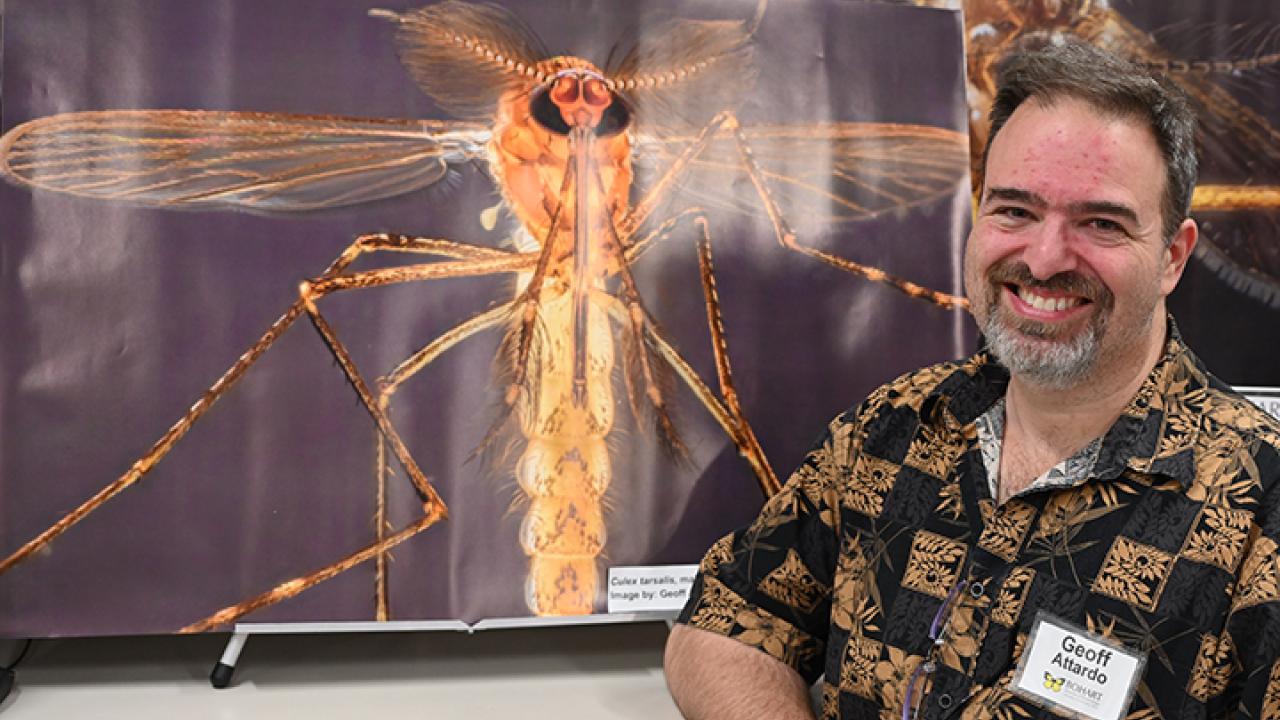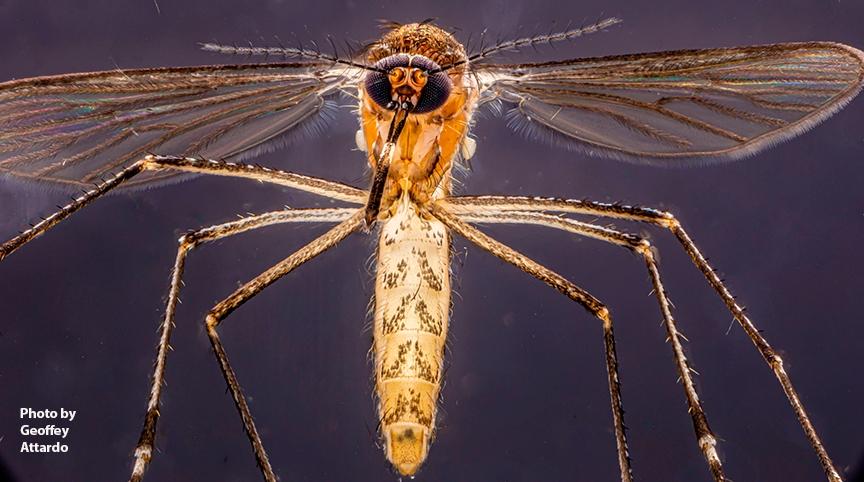
Medical Entomologist-Geneticist Geoffrey Attardo: Controlling Mosquitoes
Free Seminar Sponsored by Center for Land-Based Learning

Mosquitoes are often annoying and sometimes can be deadly.
Medical entomologist-geneticist Geoffrey Attardo, associate professor, UC Davis Department of Entomology and Nematology, will discuss the risks of mosquito-borne diseases in California at a free seminar sponsored by the Center for Land-Based Learning (CLBL) on “Natural Mosquito Control” on Wednesday, May 15.
The seminar, part of the California Farm Academy Speaker Series, takes place from 4:30 to 7:30 p.m. at CLBL, located at 40140 Best Ranch Road, Woodland. The event begins with pizza and mingling, “until about 5:30, and then the presentation,” said spokesperson Julia Hobbs Thomas. Reservations can be made on Eventbrite.com at this link.
The event is billed as "a discussion about both native and invasive species, what diseases they can spread, and how healthy ecosystems can create habitats that keep them in check. Agriculture can play a big role, because pesticide use can damage populations of beneficial insects like dragonflies. You'll also pick up a few tips to avoid being bitten!"

“He'll be talking about both native and invasive mosquito species and the diseases they can spread,” Thomas said. “And how supporting healthy ecosystems can control mosquito populations without damaging beneficial insects like dragonflies. There will be a focus on agriculture, but it will be applicable to everyone.”
Wood-fired pizza, and beverages will be served beneath the canopy of a century-old valley oak, she added. Attendees can also bring food or beverages to enjoy or share.
Said Attardo: “I will be focusing on educating people about the most imminent risks of mosquito-borne diseases in California coming from West Nile Virus—due to native Culex mosquitoes predominantly—and Aedes aegypti vectored diseases such as dengue, Zika, Chikungunya, and yellow fever. I’ll discuss places these mosquitoes breed in suburban and urban habitats, as well as ways people can eliminate and prevent creation of breeding sites.“
“I will also focus on the importance of ecosystem health and biodiversity as natural forms of vector control (biodiversity results in habitat competition, enhanced predation, alternative hosts for vectors, and clean water sources to reduce pressure driving insecticide resistance),” he said. “In particular, I will be emphasizing the maintenance of healthy wetlands and the importance of the involvement of indigenous knowledge and guidance in this process.”
Attardo specializes in medical entomology, reproductive physiology, molecular biology and genetics. He recently hosted a UC Davis symposium, sponsored by the Deaprtment of Entomology and Nematology and the Pacific Southwest Center of Excellence in Vector-Borne Diseases, on “Tule and Cattail: A Tale of the Marsh Economy and Its Role in Human Health and Wellbeing” that aimed "to advance the land management aims of local tribal communities and provide a platform to educate about the importance of maintaining wetland biology for climate change, ecological and human health, and vector control." Attardo addressed the symposium with collaborator Diana Almendariz, a traditional ecological knowledge specialist and a cultural practitioner of Maidu/Wintun, Hupa/Yurok traditions, heritage, and experiences.
A global expert on vectorborne diseases, and renowned for his groundbreaking work on tsetse flies, Attardo received the Medical, Urban, and Veterinary Entomology Award in 2022 from the Pacific Branch, Entomological Society of America.
He joined the UC Davis Department of Entomology and Nematology in 2017 from the Yale School of Public Health, where he served as a research scientist studying the reproductive biology of tsetse flies. Attardo holds a doctorate in genetics (2004) from Michigan State University, studying with Alexander Raikhel.
For more information on the May 15 seminar, contact Thomas at julia@landbasedlearning.org or 415-271-0090.
